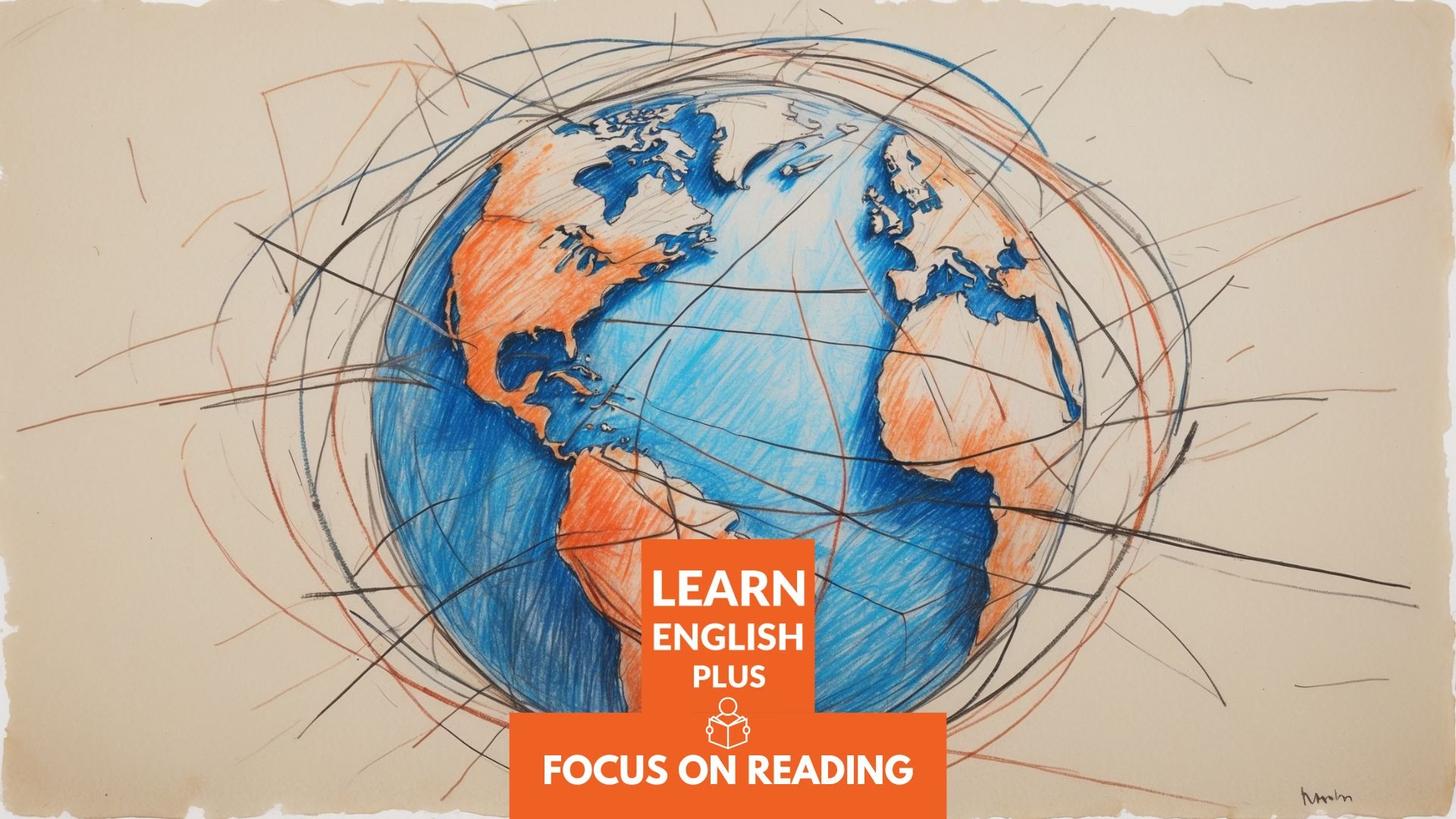Introduction
Welcome to this reading practice session! Today, we will be exploring the complex and increasingly important topic of global governance and the role played by international organizations. This type of passage is common in international exams like the SAT, TOEFL, and IELTS, testing your ability to understand complex ideas, identify main points, and infer meaning.
To get the most out of this practice, here are some effective reading strategies for international exams:
- Skim for the Main Idea: Before diving into the details, quickly read through the passage to get a general understanding of the topic and the author’s main point.
- Identify Key Terms and Concepts: Pay attention to recurring words and phrases, as they often represent important ideas.
- Read Actively: Engage with the text by asking yourself questions, making connections, and summarizing paragraphs in your mind.
- Look for Supporting Details: Once you understand the main idea, go back and look for specific information that supports it.
- Infer Meaning from Context: When you encounter unfamiliar words, try to understand their meaning from the surrounding sentences.
We suggest you take approximately 15-20 minutes to read the passage and answer the 10 questions that follow. This will help you develop effective time management skills for your exams. Good luck!
Reading Passage | Understanding Global Governance
The concept of global governance, while not denoting a singular world government, refers to the complex web of formal and informal rules, norms, institutions, and processes that shape and regulate interactions at the global level. In an increasingly interconnected world facing transnational challenges such as climate change, pandemics, economic crises, and security threats, the need for effective global governance has become paramount. At the heart of this framework lie international organizations (IOs), which serve as crucial actors in facilitating cooperation, setting standards, and addressing shared problems that transcend national borders.
International organizations are established by states, often through treaties or agreements, to pursue common objectives. These organizations can vary significantly in their scope, membership, and mandate. Some, like the United Nations (UN), boast near-universal membership and address a broad spectrum of issues, from peace and security to human rights and sustainable development. Others, such as the World Trade Organization (WTO) or the International Monetary Fund (IMF), have more specific mandates focused on particular areas of global concern. Regional organizations, like the European Union (EU) or the African Union (AU), operate within defined geographical boundaries to promote cooperation among member states.
The roles and functions of international organizations are multifaceted. They provide forums for dialogue and negotiation, allowing states to discuss and find common ground on complex global issues. They also play a vital role in setting international norms and standards, which can influence state behavior and shape global policy. For instance, the World Health Organization (WHO) sets guidelines for global health, while the International Civil Aviation Organization (ICAO) establishes standards for air travel safety. Furthermore, IOs often serve as operational agencies, implementing programs and providing technical assistance to address global challenges. The UN’s refugee agency (UNHCR) and the World Food Programme (WFP) are examples of organizations that provide direct aid and support to vulnerable populations worldwide.
Moreover, international organizations play a crucial role in monitoring and enforcing international agreements. They provide mechanisms for states to hold each other accountable and to ensure compliance with international law. The International Criminal Court (ICC), for example, prosecutes individuals accused of the most serious international crimes. However, the effectiveness of these enforcement mechanisms can be limited by the sovereignty of states and the political will of member nations.
Despite their importance, international organizations are not without their challenges and criticisms. They can be bureaucratic and inefficient, and their decision-making processes can be slow and cumbersome due to the need for consensus among diverse member states. Power imbalances among states can also influence the agenda and outcomes of IOs, leading to concerns about representation and fairness. Additionally, issues of sovereignty and national interest can sometimes hinder the ability of IOs to take decisive action.
Nevertheless, in an era defined by interconnectedness and shared challenges, international organizations remain indispensable tools for global governance. They provide the framework for multilateral cooperation, allowing states to pool resources, share knowledge, and collectively address problems that no single nation can solve alone. From maintaining peace and security to promoting economic development and protecting the environment, international organizations play a vital role in shaping a more stable, prosperous, and sustainable world. Their continued evolution and adaptation will be crucial in navigating the complexities of the 21st century and beyond.
Glossary
- Denoting: Indicating or referring to something. Usage in the reading: “…while not denoting a singular world government…”
- Complex web: An intricate and interconnected network. Usage in the reading: “…refers to the complex web of formal and informal rules…”
- Transnational challenges: Problems that extend beyond national borders and affect multiple countries. Usage in the reading: “…facing transnational challenges such as climate change…”
- Paramount: Of supreme importance; essential. Usage in the reading: “…the need for effective global governance has become paramount.”
- Mandate: An official order or commission to do something. Usage in the reading: “These organizations can vary significantly in their scope, membership, and mandate.”
- Broad spectrum: A wide range of different things. Usage in the reading: “…address a broad spectrum of issues, from peace and security to human rights…”
- Multifaceted: Having many different aspects or features. Usage in the reading: “The roles and functions of international organizations are multifaceted.”
- Forums for dialogue and negotiation: Platforms or opportunities for discussion and reaching agreements. Usage in the reading: “They provide forums for dialogue and negotiation…”
- Common ground: Shared beliefs, interests, or opinions. Usage in the reading: “…discuss and find common ground on complex global issues.”
- Operational agencies: Organizations that are responsible for putting plans or policies into effect. Usage in the reading: “Furthermore, IOs often serve as operational agencies…”
- Vulnerable populations: Groups of people who are at a higher risk of harm or hardship. Usage in the reading: “…provide direct aid and support to vulnerable populations worldwide.”
- Compliance: The action or fact of conforming to a wish or command. Usage in the reading: “…to ensure compliance with international law.”
- Bureaucratic: Relating to a system of government or business that has many complicated rules and procedures. Usage in the reading: “They can be bureaucratic and inefficient…”
- Cumbersome: Slow and difficult to handle or use. Usage in the reading: “…and their decision-making processes can be slow and cumbersome…”
- Consensus: General agreement among the members of a group. Usage in the reading: “…due to the need for consensus among diverse member states.”
- Power imbalances: Unequal distribution of authority or influence. Usage in the reading: “Power imbalances among states can also influence the agenda…”
- Representation and fairness: The act of speaking or acting on behalf of someone or the state of being just and impartial. Usage in the reading: “…leading to concerns about representation and fairness.”
- Hinder: To create difficulties for someone or something, resulting in delay or obstruction. Usage in the reading: “…can sometimes hinder the ability of IOs to take decisive action.”
- Indispensable tools: Absolutely necessary or essential instruments or means. Usage in the reading: “…international organizations remain indispensable tools for global governance.”
- Multilateral cooperation: Cooperation among several countries. Usage in the reading: “They provide the framework for multilateral cooperation…”
- Pool resources: To combine assets or means for a common purpose. Usage in the reading: “…allowing states to pool resources…”
- Shaping a more stable, prosperous, and sustainable world: Contributing to the development of a world that is more secure, economically successful, and able to be maintained at a certain rate or level. Usage in the reading: “…play a vital role in shaping a more stable, prosperous, and sustainable world.”
- Continued evolution and adaptation: The ongoing process of change and adjustment to new conditions. Usage in the reading: “Their continued evolution and adaptation will be crucial…”
- Navigating the complexities: Dealing effectively with difficult or intricate situations. Usage in the reading: “…in navigating the complexities of the 21st century…”










0 Comments